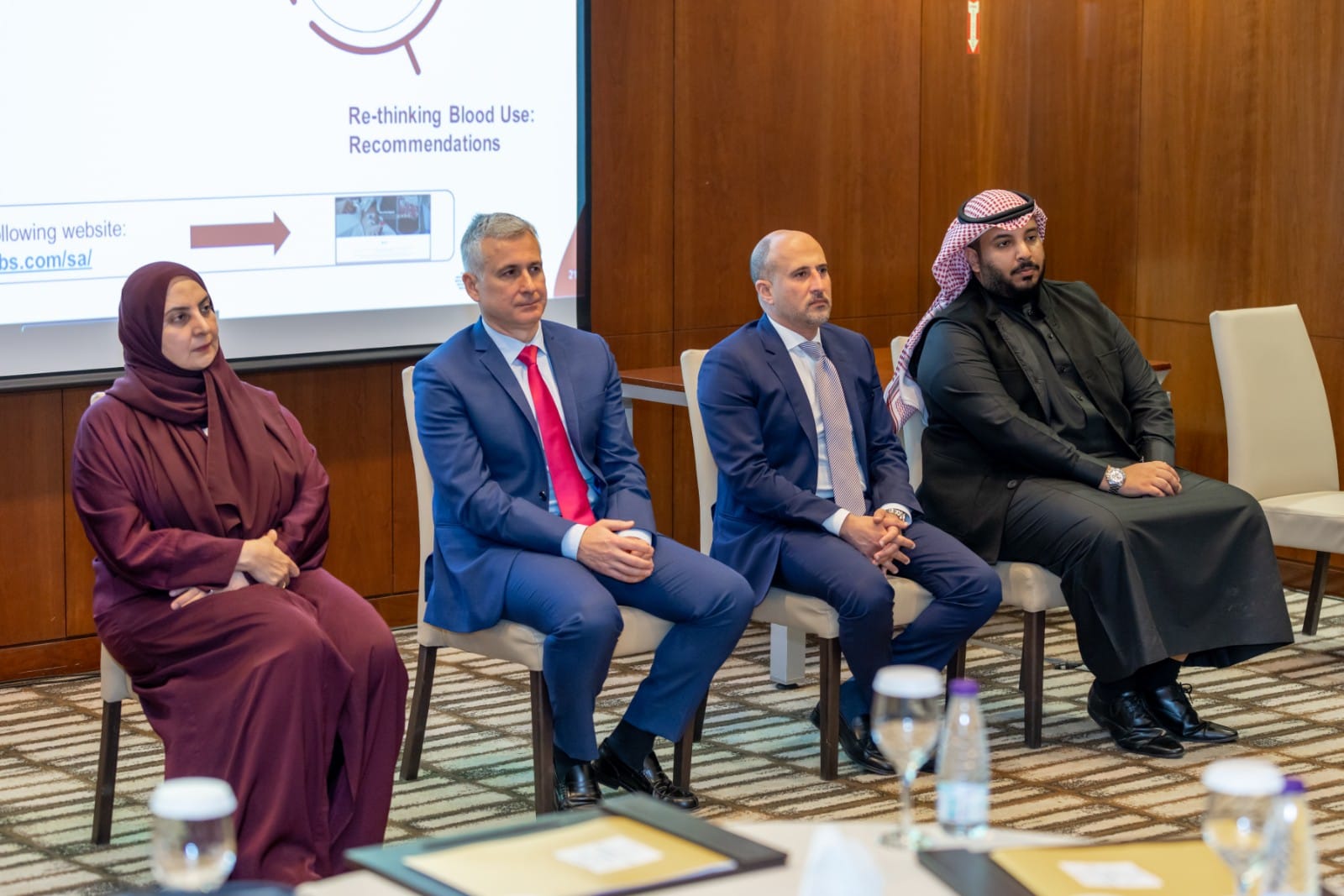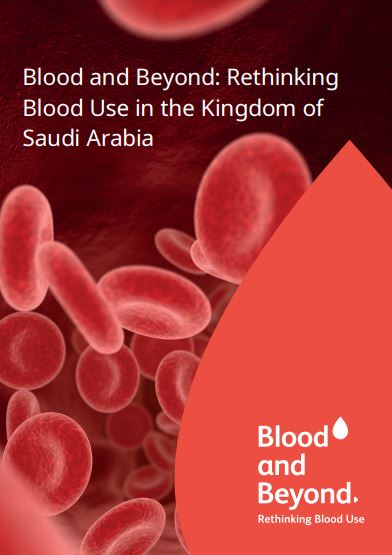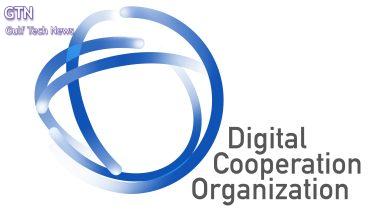‘Blood and Beyond’ report launched in Saudi Arabia

Bristol Myers Squibb calls for a collaborative, patient-centric approach to optimize blood transfusion management in Saudi Arabia
Key recommendations from the roundtable discussion in Riyadh on 27th February 2023:
· The need for a centralized, national, blood transfusion database and the reinforcement of supply chains in remote areas
· The implementation of standardized transfusion practices and the development of national clinical guidelines for blood transfusion services
· Increased public awareness to highlight the need for voluntary blood donors and upskill HCPs (Healthcare Professionals) with specific training to improve the quality of blood transfusion delivery and management
· Adopt alternatives to transfusion and address key constraints such as the lack of access, scarcity of data from local trials, as well as limited physicians and patient awareness
Riyadh – Gulf Tech:

According to Dr. Salwa Hindawi, Professor of Hematology & Transfusion Medicine, President of Saudi Friend’s Charity of Thalassemia & Sickle Cell Anemia Society, Chief Scientific Officer of Saudi Society of Transfusion Medicine & Services, Saudi Arabia has a complex and highly specialized blood supply chain involving different stakeholders who are responsible for ensuring compliance with safe and smooth transfusion management. The transfusion of blood, and blood products, is a vital support service for clinical practices. However, the healthcare system in Saudi Arabia is faced with several unmet needs and challenges representing a high economic burden on the sector and the Saudi society specifically due to the significant costs of chronic disease management related to anemia.
Moreover, Dr. Salwa Hindawi notes that the blood transfusion ecosystem in KSA is primarily a hospital-based blood banking system, and every small or large hospital operates its own bank for its requirement of blood products rather than a national system. In major cities, such as Riyadh, Jeddah and Dammam, central blood banks supply blood products to certain hospitals from the Ministry of Health (MOH). These blood banks, which are subsidiaries of the major MOH Central Laboratories, have several different transfusion practices and there are no clinical guidelines or any hemovigilance system for blood transfusion services.
These are amongst the challenges that have been raised in a report titled “Blood and Beyond: Rethinking Blood Use in the Kingdom of Saudi Arabia”, a collaborative, multi-stakeholder initiative by Bristol Myers Squibb, and developed by experts from the field of transfusion medicine and hematology, patient advocacy, health sector management, policy, and regulations.
The report was launched at the occasion of a roundtable event in Riyadh and hosted by experts including Salwa Hindawi, Professor of Hematology & transfusion medicine , President of Saudi friend’s charity of Thalassemia & Sicke cell anemia society , Chief Scientific Officer of Saudi Society of Transfusion Medicine & Services– Mohamed Mostafa, Vice-President & General Manager at IQVIA for KSA and Egypt – Oscar Delgado, General Manager at Bristol Myers Squibb, Middle East & Africa, and Wessam Ibrahim, Market Access Head at Bristol Myers Squibb, Middle East & Africa.
During the session, moderated by the Saudi media figure Khadija Alwaal, the panelists focused primarily on blood transfusion management and recommended the introduction of revised policy and guidelines; raising public awareness; supporting professional education and training, and establishing process-related changes and suitable technology interventions. Together, the panelists called on regional decision-makers and other stakeholders in the Kingdom to act on the recommendations to help improve patient outcomes, reduce the potential risks of transfusions, and avoid blood wastage to help safeguard supplies and reduce the cost of transfusions.
Oscar Delgado, General Manager at Bristol Myers Squibb – Middle East and Africa said: “Saudi Arabia has a clear vision for the development of a robust and resilient healthcare system for its population. The ambitious plans for the nation’s health and well-being are already underway and Bristol Myers Squibb has lent its full support to Vision 2030.
“As a leading biopharma company, we believe in the power of collaborative partnerships and initiatives such as ‘Blood and Beyond’ that are critical to provide delivering rapid transformative changes and medicines to patients. We were delighted to have experts sharing insights and exchanging perspectives for the future of blood transfusion management in Saudi Arabia. We thank all our esteemed stakeholders for their invaluable contributions. Together we aim to raise awareness and address the challenges and unmet needs confronting blood transfusion in the Kingdom to improve patient outcomes.”
Globally, there is a gap between the demand for and supply of blood, and KSA is no exception. Local communities across Saudi Arabia are already making considerable effort to raise awareness of the important benefits associated with blood donation. According to a 2016 report, the annual blood donation rate in the country was 13.8% per 1,000 population, of which 39.7% was voluntary non-remunerated blood donation[1].
However, the global pandemic led to a considerable decrease in the supply and demand for blood in hospitals in the Kingdom. This reduction in demand was primarily due to a lower number of hospital admissions during this period while also prompting a drop in supply triggered by concerns about contracting COVID-19 during blood donation[2].
Hematology is an important therapy area for Bristol Myers Squibb and where the company has made significant scientific and technological progress. During the event, Oscar Delgado reaffirmed the company’s determination to maintain its leading role and strong expertise in developing breakthrough therapies to treat patients with hematological disorders including thalassemia which is prevalent in KSA and the Middle East. Patients living with thalassemia are often required to receive lifelong red blood cell transfusions to support normal growth and development, maintain quality of life and increase life expectancy.
This is an annual event to review progress and encourage discussion to raise awareness of the unmet needs in KSA and how to progress to ensure better patient outcomes.



